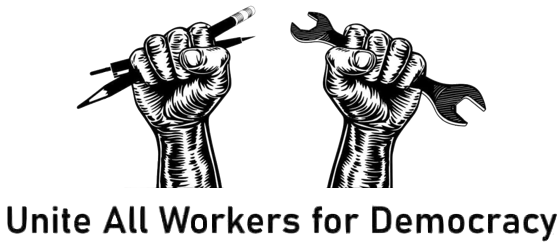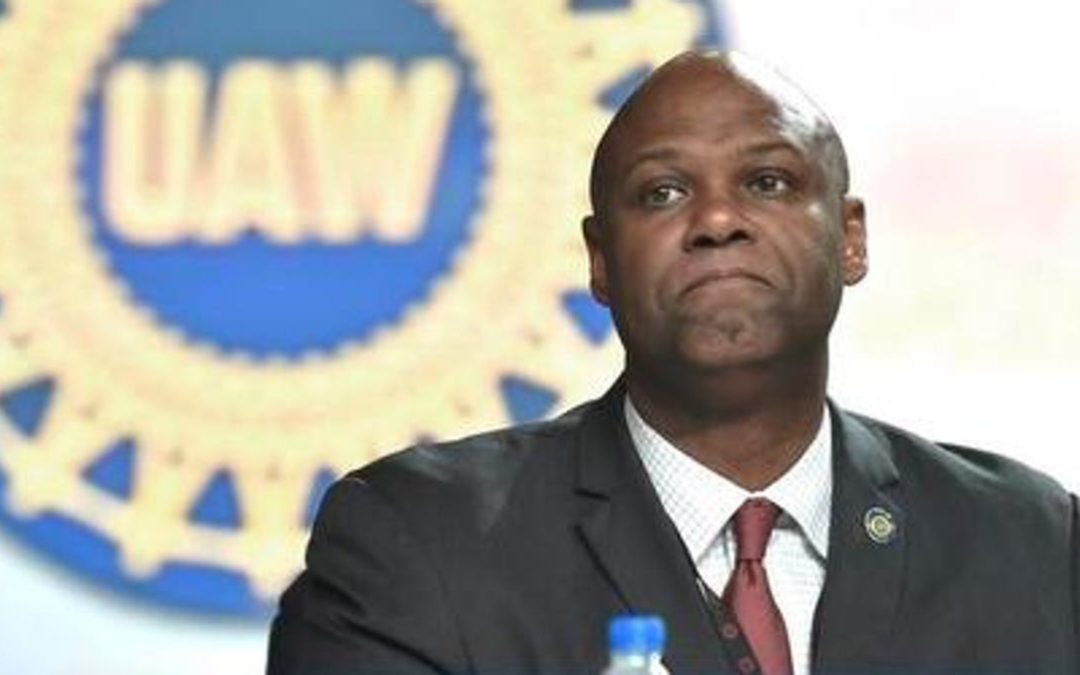On Monday the International UAW Executive Board (IEB) unanimously voted to appoint secretary-treasurer Ray Curry to the highest office of our union. Curry will take over for current UAW President Rory Gamble, who announced his retirement only a few short days ago.
Much of the talk regarding Gamble’s exit has focused on the job he has done in an attempt to clean up the union due to the corruption scandal that has tarnished the UAW’s reputation. The prevailing theory among many is that — with the criminally guilty such as Gary Jones and Dennis Williams having exchanged high-dollar Armanis for orange jumpsuits — the union is on the path to redemption and that all is well once again at 8000 East Jefferson Avenue.
And although the UAW is undoubtedly better for having purged out those who were found to have illegally betrayed the rank-and-file, members of our union should understand that the era of concessionary bargaining and corporate coziness between union and company will still be very much alive and well during Ray Curry’s tenure.
Curry is a member of the Administration Caucus (AC) — the political group within our union that has dominated power and control over the UAW for over seventy years. With the exception of Jerry Tucker in the 1980’s, the AC has successfully stifled any attempt of non-Caucus candidates to hold a seat on the International Executive Board — effectively suppressing democracy at the highest levels of our union regardless of the tactics required to do so.
Yes, the Administration Caucus is commonly referred to as the Reuther Caucus. After all, it was UAW icon Walter Reuther and his supporters that initially formed the AC during the battle for control of the IEB throughout the union’s early years. But make no mistake — the Administration Caucus of today is a far cry from the group that existed under the leadership of Reuther — so much so that Reuther’s own brother, Victor, became a vocal critic of the Caucus and it’s policies.
For over forty years, the AC has engaged in what is commonly referred to as “jointness” — the belief that corporation and union have much more in common than they have in disagreement. It is the idea that company and union can work together in relative harmony to achieve prosperity for both bosses and workers. Jointness means that workers must continually strive to help the corporations find ways to save on costs — even at the expense of their own jobs, and even more disturbingly, at the expense of worker solidarity.
Under jointness, Local union is pitted against Local union to see which one can offer the most concessions to the corporations in an attempt to win future product allocation. As one old and wise unionist once stated, “even the Local that wins that battle ultimately loses.”
In a recent Labor Notes article, historian Nelson Lichtenstein wrote that under the Administration Caucus the UAW “has been plagued not only with corruption but also, perhaps more profoundly, with a culture of collaboration with employers. Wages and benefits declined as the union accepted concessions and a multi-tier workforce, allowed locals to be pitted against one another, and largely failed to organize the growing nonunion share of U.S. auto production.
But, however destructive it has been for the vast majority of the UAW membership, jointness is still the ideology of the Administration Caucus. It is fully ingrained in the fiber of the AC. It is who they are and what they believe. Despite decades of plant closures, concessions, and broken promises from the corporations, the AC has doubled down on its loyalty to the program. Jointness has not only been promoted and implemented under Fraser, Bieber, Yokich, Gettlefinger, King, Williams, Jones, and Gamble, it has been vastly expanded over the last forty years, often completely blurring the lines between company and union.
Which is why the government mandated referendum vote later this year is so vitally important. We have the opportunity to take the power out of the hands of a select few (the AC dominates proceedings at our Conventions with an iron fist) and return it back to the hard-working members of the UAW. Every member in good standing within our union would have a right to cast a vote for their preferred candidate. We need this type of democracy at all levels of the UAW — including the International Executive Board. One Member One Vote would be a monumental step in democratizing the UAW at the national level. It would also re-energize a largely apathetic rank-and-file that has long been accustomed to a top-down structure where meaningful change has been impossible.
The Administration Caucus has shown time and time again that it has no desire to move away from the disastrous effects of jointness or to engage in any real democracy at the top.
The tenure of Ray Curry will be no different in that regard.

